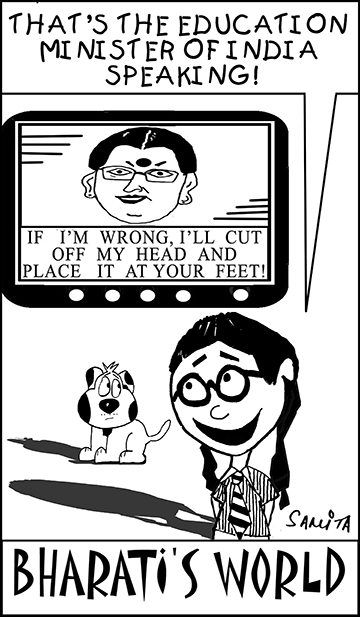 Under s. 12 (1) (c) of the landmark Right of Children to Free and Compulsory Education (RTE) Act, 2009, non-minority private schools are obliged to reserve 25 percent of seats in class I for children from poor households in their neighbourhood and admit applicants selected by the state government. However, the admission process under s. 12 (1) (c) for the new academic year beginning June, has got off to a faltering start in Karnataka.
Under s. 12 (1) (c) of the landmark Right of Children to Free and Compulsory Education (RTE) Act, 2009, non-minority private schools are obliged to reserve 25 percent of seats in class I for children from poor households in their neighbourhood and admit applicants selected by the state government. However, the admission process under s. 12 (1) (c) for the new academic year beginning June, has got off to a faltering start in Karnataka.
First, the online admissions registration link of the department of public instruction (DPI), expected to go live at 9.00 a.m on February 23, failed to activate until after 7 p.m. Consequently, hundreds of parents from low-income households who had skipped work and made a beeline to help-centres set up in Bangalore by the DPI and local NGOs, returned disappointed having failed to register their children for the 114,000 RTE seats declared available in 11,500 private schools statewide this year.
This confusion was confounded by new age eligibility norms prescribed by the DPI for admission of children into class I (or nurseries of composite private unaided and aided schools) under s. 12 (1) (c). According to a DPI circular issued on February 8, children should be between three years ten months and four years ten months to qualify for admission into LKG (lower kindergarten), and between five years ten months and six years ten months for class I (as on June 1 of the year in which admission is sought). This is the third year in a row that the DPI has changed age eligibility norms for s. 12 (1) (c) admissions. For instance in 2014-15, the age eligibility for LKG admissions was three years five months to four years five months and for class I children it was five years five months to six years five months.
According to Nagasimha G. Rao, convenor of Karnataka’s RTE Task Force, the annual age revision exercise is aimed at “keeping underprivileged students out” of the RTE quota admissions process. The RTE Task Force has received hundreds of calls from parents since February 23 complaining about the new age norms.
“The purpose of changing the age eligibility norms for s. 12 (1) (c) admissions every year since 2014 is to make it as difficult as possible for parents to secure admission for children into private schools under the RTE quota. If admissions are restricted, the state government will save the tuition fees it has to pay to private schools for education of RTE quota children. This is the only explanation for the annual flip-flop. No scientific study or research involving experts in early childhood education has been conducted by DPI to determine admission age norms,” says Rao.
For tutoring children admitted under s. 12 (1) (c), the state government is obliged to pay private schools the equivalent of per student expense incurred by it in its own (government) schools (s. 12 (2)). Although this is substantially less than the tuition fees normatively payable by non-quota students, the state government has consistently defaulted on RTE fee reimbursements (Rs.11,848 per student) to the state’s 11,500 private schools.
Nevertheless, the new admission age prescribed by the DPI has been welcomed by private school managements. “In all CISCE-affiliated schools, children should have completed four years to qualify for admission into LKG and six years for class I while in CBSE schools, the cut-off is three years ten months for LKG and six years for class I. Ditto in state board schools. Therefore the new age criteria set by the DPI are in sync with our own admission norms. Admitting younger and/or older children imposes a great deal of stress and burden on our teachers to manage them. With each passing year, RTE admissions are becoming more complicated as the government changes norms. We have no say in the admissions which are done at the sole discretion of the local block education officer. The delayed fee reimbursements just add to our problems,” says the promoter of a private school who preferred to remain anonymous.
Unfortunately, six years after the RTE Act came into force on April 1, 2010, the Karnataka state government has failed to clearly define eligibility, selection and admission criteria for s. 12 (1) (c) admissions, resulting in DPI officials and BEOs using discretionary powers to enforce implementation of the reserved quota. According to State of the Nation: RTE Section 12 (1) (c), a nationwide study (2015) conducted jointly by IIM-Ahmedabad, the Delhi-based Central Square Foundation, Accountability Initiative and Vidhi Centre for Legal Policy, in 2013-14, of the 115,000 seats declared available under s. 12 (1) (c) in Karnataka, only 29,063 were filled.
On May 6, 2014, the Supreme Court excluded much prized convent schools from the ambit of s.12 (1) (c). Now slapdash, ambiguous and arbitrary rules and regulations are denying desperate parents access to even non-minority private schools.
Jeswant J.M. (Bangalore)